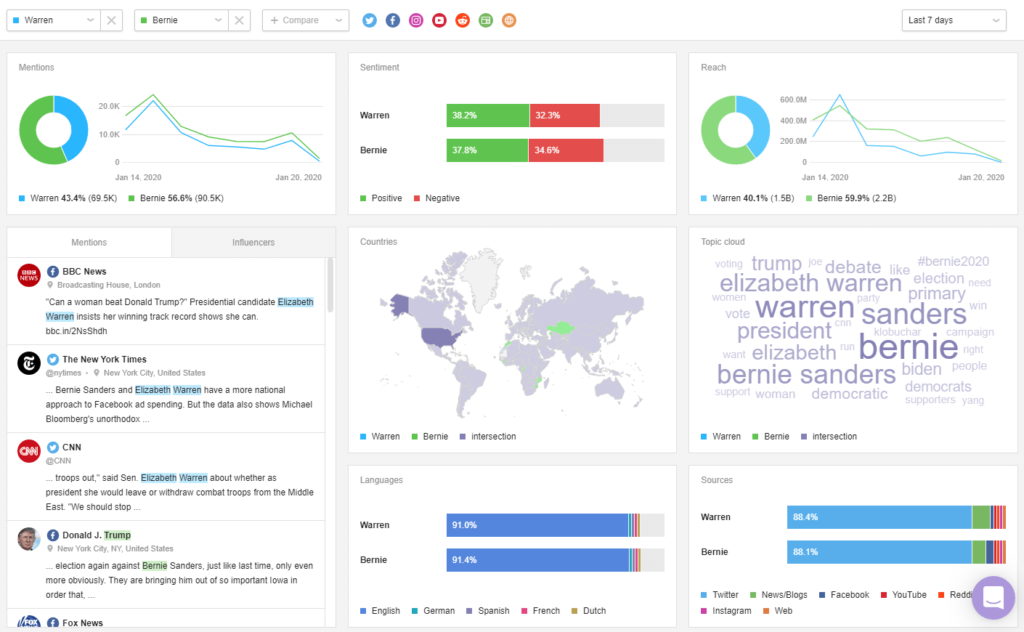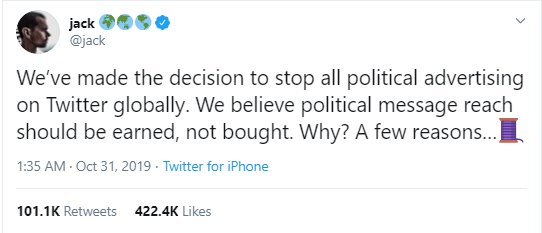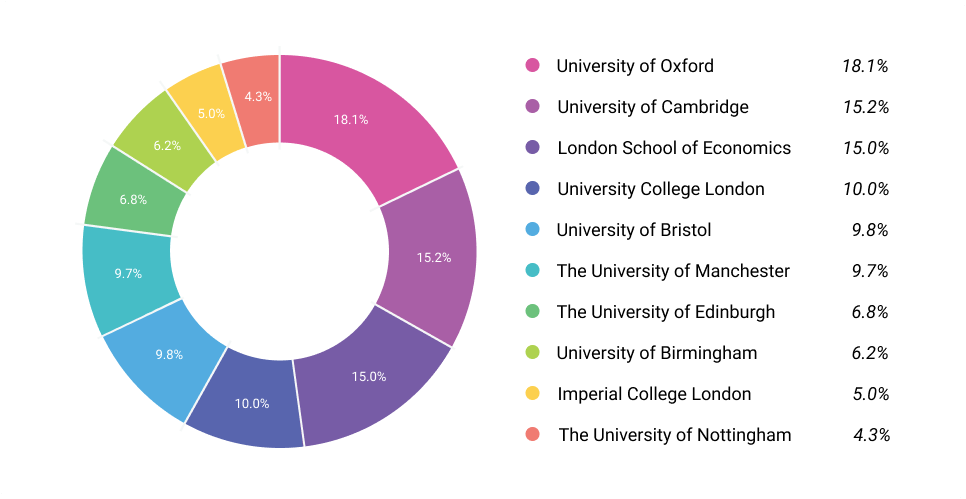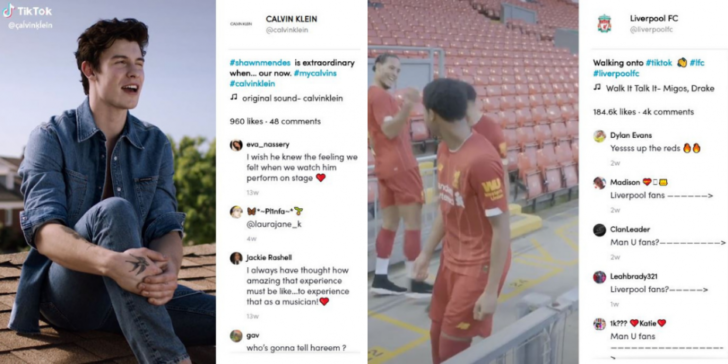Every year the social media marketing community turns into fortune tellers — we collectively try to predict what trends, features, and innovations will take place in the upcoming year. Of course, trying to predict social media trends is much more trustworthy than fortune-telling even if you’re using astrology as a framework for that.
Most social media predictions stand on the existing trends and research, which makes them highly likely to actually be accurate. It’s a common truth that social media platforms are constantly changing, they come up with new features, change algorithms, review their respective policies, and it all affects the way we do marketing on social. But it’s not like these changes come out of nowhere — they are all the results of social media company’s vision and business model or external circumstances.
To identify trends that will dominate social media this year we need to consider all of these internal and external circumstances. And that’s exactly what I did to make up this list of five major trends that will be prominent in 2020. In addition to simply describing what to expect in 2020, I also give some recommendations on how to use these trends to your brand’s advantage.
1. Let data analysis lead your strategy

Source: Screenshot from social listening tool, Awario
Knowledge is power, and social media companies want to empower their users and brands, or rather attract more investments. That’s why they are giving social media managers more and more access to insights and data analytics. Facebook is constantly expanding Creator Studio’s and Facebook Insights’ functionality, Twitter is adding more insights to Media Studio, and Pinterest is adding Pinterest Trends to inform brands on user behavior.
This year we are likely to see more ways to access user trends on different platforms and tap into this data for marketing and social media research. At the same time, due to trend number three on this list, brands might have to change the way they used to do social media marketing, especially with targeted advertising. There are ethical and unethical ways to use data, and the upcoming year will probably be the time to rethink these terms. That may encourage brands to get more involved in the research of the publicly available data with the help of social listening, for example.
How to be on-trend
- Make sure your social media strategy is based on insights gained through data research, not a blind guess. Use the insights provided by platforms like Facebook and Instagram Insights, Twitter Analytics, and so on to find what content performs best, when you should post, and what resonates with your audience. Your KPIs should respond to your goals – if you are raising brand awareness, pay attention to the number of followers, if you’re focusing on community building, keep track of the engagement metrics.
- Collect and analyze publicly available data, this is the most ethical way to conduct marketing research without invading anyone’s privacy. Social monitoring and listening tools such as Awario or Brandwatch break down the sentiment, reach, demographics, and user behavior trends behind any phenomenon you want to research on social media.
2. Make your communication more private

In 2019 Mark Zuckerberg claimed that “the future is private”. This was a surprising turn of events for the company which started out as a service to meet people and connect strangers. Facebook’s CEO announced that from now own the platform will prioritize ways to build and sustain smaller communities and tet-a-tet communication meaning more focus on Groups and Messenger as well as WhatsApp. And it’s not just Facebook, social media apps have been introducing more privacy-driven features lately including Instagram’s “Close Friends” list, various updates to DMs functionality for Twitter and Instagram, more ways for brands to manage social messaging. With the upcoming redesign of Facebook feed (expected to be fully rolled out in Q1 and the new ability to limit replies to your tweets, it’s obvious that 2020 will be the year of private social media.
The turn to private communication is, of course, motivated by user behavior. People simply got much more into messaging their friends and interacting in small interest-based communities. Social media companies took notice of that and are now giving people what they want. However, taking into consideration how many privacy scandals we had in the last couple of years, it’s easy to imagine that the turn to privacy was also prompted by the intent to improve ones’ reputation, especially when we are talking about Facebook.
How to be on-trend
- If you don’t have a Facebook group for your customers yet, it’s high time you start one.
- Use the “Close Friends” list on your Instagram account to share exclusive content with your most engaged followers.
- Go beyond the big three by looking into smaller communities on Reddit and Quora for better opportunities to engage with the audience.
3. Take up more social responsibility

Source: Twitter
This will probably be the most prominent theme in the news coverage of social media companies for 2020. Once again, it’s not a new trend — the pressure to sort out the issues with spamming, misinformation, manipulation of the algorithm, and the social media impact on users’ mental health has been there for a while.
In 2020 we can expect more regulations on ads, more sophisticated algorithms for discovering spammers and bots, and more ways for users to control what they are seeing on the timeline. In 2019 we saw some actions taken not just by the platforms themselves but also by the state — there were several court cases around creating fake engagement and selling followers and likes that could become precedents for creating legislation around this matter.
Both Facebook and Twitter CEOs publicly stated that the ultimate framework for dealing with misleading ads and handling users’ data should come from the governmental actors and independent expert committees, not the social media companies. California Consumer Privacy Act is the first attempt at such legislation. This will certainly affect the way brands advertise on social and conduct marketing research (see trend number one).
Social media companies also face a bigger challenge – how to avoid locking people in their own social media bubbles and creating echo-chambers that skew their view of the world? Admittedly, this is a broader challenge for our society in general. However, we can’t ignore the fact that social media contributes to exacerbating the political and social divide between people, and it might be the time for platforms to rethink the core functionality and algorithms behind them.
Another area where social media companies are encouraged to take on more responsibility is mental health. By now it is obvious (and confirmed by research) that social media can have a negative effect on users’ self-esteem and mental health, especially among teenagers, and social media companies need to take notice of that. Some platforms have already made steps in the right direction by informing users about how much time they are spending on the app. The next big change will concern vanity metrics (see below). In 2020, it’s expected that there will be more platform regulations that aim to protect users from abuse and bullying and more ways for users to filter the information they don’t want to consume.
How to be on-trend
- Make sure your ads comply with the platform regulations.
- Discard sketchy growth hacks such as buying followers or using third-party tools for follow-unfollow tactics in favor of genuine engagement and community building.
- To make interactions with your audience actually genuine, understand when those interactions are welcome. The best way to start engaging with people on the internet is by commenting and replying to their public posts: and of course, your comments should be meaningful and relevant. You can find people and posts to engage through social media monitoring — simply monitor keywords and phrases appropriate for your niche.
- Use social listening, competitor and hashtag research to find accounts related to your niche and engage them in the comments. Offer your expertise or start conversations discussing relevant topics.
4. Focus less on vanity metrics

This trend is partly related to the previous one. In 2019, we saw several experiments around hiding vanity metrics, mainly like count, on Facebook and Instagram. Twitter’s CEO has also been vocal about his desire to move away from vanity metrics. Moreover, both Instagram and Twitter have slightly tweaked their design to put less emphasis on the number of followers an account has. The rejection of like count is probably motivated both by moral and practical reasons, comparing your number of likes to someone else’s is proven to damage one’s self-esteem.
Hiding vanity metrics from anyone could eliminate the pressure of competition people feel and make social media less stressful. Instagram has also revealed that during the tests they discovered that discarding like count leads to more content on the platform and that’s what any social media company wants.
That’s the logical outcome of the previous point, if people feel less pressure to get the most likes, they will feel more at ease with posting. All in all, prepare to say goodbye to like counts in 2020.
How to be on-trend
- For social media managers, discarding vanity metrics means new ways of doing competitor and influencer research. You can use Facebook’s native functionality (Brand Collabs Manager, Insights) or social media analytics tools to compare your brand with your competitors or find and evaluate influencers relevant to your niche.
- Track the number of followers, engagement rate, and ads placed on Facebook through “Pages to Watch” and “Ad Library”.
- Use social listening to compare your social media Share of Voice with your competitors.

Source: Screenshot from social listening tool, Awario
5. Try TikTok

In 2019 TikTok became one of the most downloaded apps in the app store. The swift rise of the social media app drew a lot of attention from social media marketers, and will surely draw even more attention this year. The greatest thing about TikTok is its feed algorithm which allows you to reach a significant number of users right from the get-go, without having to gain followers for a long time.
The platform is tailored for viral content: easy sharing, trends, and challenges enable you to easily create videos with a huge potential reach. Moreover, the platform is constantly developing its business capabilities, just recently TikTok rolled out the ability to run ads on the platform for everyone.
TikTok is the app to keep an eye on, as it is one of the fastest-growing social media networks, it surely has bigger plans for the upcoming year.
How to be on-trend
- If you’re not TikTok yet, create an account right now.
- See what trends could be useful for your industry, check out what your competitors are doing, examine the latest trends. A lot of TikTok’s content is focused on viral songs, dance challenges, and certain editing techniques. So you should research those if you want to create popular content.
- Try advertising on TikTok! TikTok Ads is not the only way to promote your product, you can also partner up with TikTok creators to reach new audiences.
In conclusion
Social media trends don’t just pop out of nowhere and it’s not difficult to predict what will happen in the upcoming year. However, knowing something is only half the battle — you need to actually adjust your social media strategy to the ever-changing circumstances to get the best results.
In this article, I tried to demonstrate the broader trends but also shared actionable tips to implement in your work. Some of the trends that will play out in 2020 may seem like an impediment for social media marketers, you can’t use targeting, you can’t see how many likes an influencer gets, and people are getting harder to reach since they are all hanging out in private communities. But it’s actually a chance for building genuine and trusting relationships with your audience — and you can do it by using these trends to your advantage.
Aleh is the Founder and CMO at SEO PowerSuite and Awario. He can be found on Twitter at .

